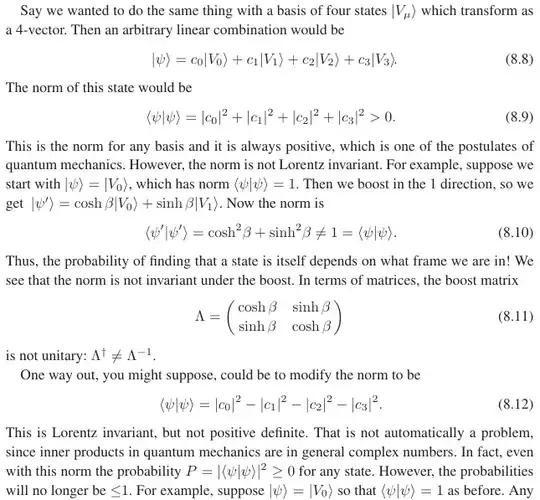I've read a paragraph in Schwartz-QFT where he argues that unitarity and Lorentz invariance are incompatible due to the norms being different:
Why does he assume that the boost in this basis is $(\cosh\beta,\sinh\beta)$ though? Can't you have a normal $(\cos\beta,\sin\beta)$ in this Hilbert space? I mean for some other definition of an inner product (i.e. not $\langle\psi|\psi\rangle)$ it may be $(\cosh\beta,\sinh\beta)$ again, but it doesn't have to be the same for $\langle\psi|\psi\rangle$?
